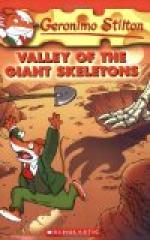“But will he sell them to me?”
“Not if you tell him why you want them.”
“But he hates me, old pal.”
“The Colonel never permits sentiment to interfere with business, my son. He doesn’t need the rails, and he does desire your money. Consider the rail-problem settled.”
“How do you stand with the Mayor and the council?”
“I do not stand at all. I opposed Poundstone for the office; Dobbs, who was appointed to fill a vacancy caused by the death of a regularly elected councilman, was once a bookkeeper in our office, you will remember. I discharged him for looting the petty-cash drawer. Andrews and Mullin are professional politicians and not to be trusted. In fact, Poundstone, Dobbs, Andrews, and Mullin are known as the Solid Four. Yates and Thatcher, the remaining members of the city council, are the result of the reform ticket last fall, but since they are in the minority, they are helpless.”
“That makes it bad.”
“Not at all. The Cardigans are not known to be connected with the N. C. O. Send your bright friend Ogilvy after that franchise. He’s the only man who can land it. Give him a free hand and tell him to deliver the goods by any means short of bribery. I imagine he’s had experience with city councils and will know exactly how to proceed. I know you can procure the rails and have them at the intersection of B and Water streets Thursday night. If Ogilvy can procure the temporary franchise and have it in his pocket by six o’clock Thursday night, you should have that crossing in by sunup Friday morning. Then let Pennington rave. He cannot procure an injunction to restrain us from cutting his tracks, thus throwing the matter into the courts and holding us up indefinitely, because by the time he wakes up, the tracks will have been cut. The best he can do then will be to fight us before the city council when we apply for our permanent franchise. Thank God, however, the name of Cardigan carries weight in this county, and with the pressure of public sympathy and opinion back of us, we may venture, my boy, to break a lance with the Solid Four, should they stand with Pennington.”
“Partner, it looks like a forlorn hope,” said Bryce.
“Well, you’re the boy to lead it. And it will cost but little to put in the crossing and take a chance. Remember, Bryce, once we have that crossing in, it stands like a spite-fence between Pennington and the law which he knows so well how to pervert to suit his ignoble purposes.” He turned earnestly to Bryce and waved a trembling admonitory finger. “Your job is to keep out of court. Once Pennington gets the law on us, the issue will not be settled in our favour for years; and in the meantime—you perish. Run along now and hunt up Ogilvy. George, play that ‘Suwannee River’ quartet again. It sort o’ soothes me.”
CHAPTER XXV
It was with a considerably lighter heart that Bryce returned to the mill-office, from which he lost no time in summoning Buck Ogilvy by telephone.




